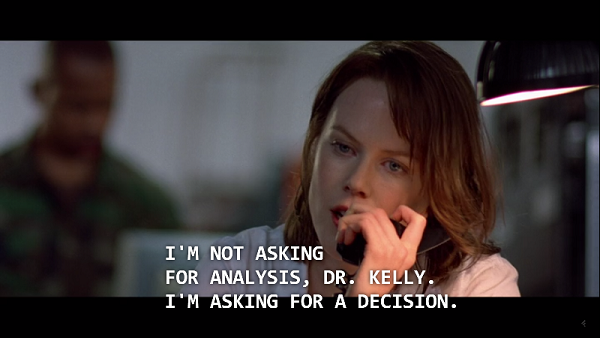[ by Charles Cameron — who was taught to think of “longer term” as extending to our children of the seventh generation ]
.
Here’s the problem:
**
In the Introduction to Cyber Analogies (Feb 2014, 133 pp., Emily Goldman & John Arquilla, eds) we read:
The project was conceived and carried out to help very senior, busy, responsible people understand topics and issues that are fast-moving and dynamic, and have potentially great consequences for society, security, and world affairs.
I’m never quite sure that “very senior, busy, responsible people” are the right people to task with understanding “topics and issues that are fast-moving and dynamic, and have potentially great consequences for society, security, and world affairs.”
Ahem.
Do I qualify as a heretic yet?
I feel some kinship here with Pundita‘s recent comment:
I venture there are too many Grand Master chess players in America’s defense/diplo establishment and not enough ping pong players.
And the estimated number of exposures varies, I know — but how far would you trust the “very senior, busy, responsible people” who, we now know [1, 2, 3], covered up our poison gas casualties in Iraq?
**
At the expense of strategic analysis..
I’m thinking about all this because there’s a shift under way in intel circles, as described in the recently issued Report of the Congressionally-directed 9/11 Review Commission, The FBI: Protecting the Homeland in the 21st Century:
Once deployed to the field, many of these analysts have been embedded in operational squads in the field, though their work favors support to tactical and case work at the expense of strategic analysis. The FBI launched a more structured Integrated Curriculum Initiative (ICI) in 2014, with the primary goal to develop a comprehensive basic training program for new agents and analysts that teaches them to operate in a threat-based, intelligence-driven, operationally-focused environment.
More explicitly, Scott Shane wrote in C.I.A. Officers and F.B.I. Agents, Meet Your New Partner: The Analyst:
Some people who study intelligence and counterterrorism are concerned that the pendulum could swing too far. Intelligence analysts, said Amy Zegart, a Stanford scholar who studies intelligence, could become too consumed by daily operations and neglect strategic thinking about threats that could be years away.
At the C.I.A., she said, counterterrorism analysts are already “too tactical,” focused on the next drone target. If the same model is now applied to the rest of the agency’s work, other analysts, too, could be caught up in short-term demands, she said. “Who in the U.S. government,” she asked, “is going to be thinking about longer-term threats?”
Longer-term? You mean, longer than the current electoral cycle?



